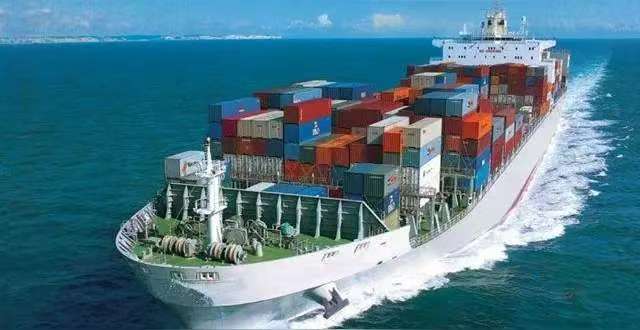
Recently, the global trade situation has been extremely volatile. A series of new developments are profoundly influencing the global economic landscape. The United States has imposed tariffs on some EU goods and tightened the exemption policy. The Los Angeles Port has raised the storage fee for refrigerated containers. The EU's new regulations on ship emissions have come into effect. All these events have stirred up waves in the international trade field and have had certain impacts on global economic trade and shipping rules.
The practice of the United States wielding tariffs has a long history. This time, imposing tariffs on the European Union and tightening the tax exemption policy is undoubtedly another resurgence of trade protectionism. From historical experience, trade protectionism has never been a good solution to trade problems. The United States has implemented tariff measures many times in the past, seemingly protecting some of its domestic industries in the short term, but actually bringing many negative effects. For example, it has raised the living costs of domestic consumers and weakened the competitiveness of American enterprises in the global market. According to relevant research, the previous tariff policies of the United States have led to an increase in the prices of some imported goods, and the annual expenditure on daily consumption of ordinary American families has significantly increased. Moreover, this unilateralist behavior has disrupted the global trade order and disturbed the normal international trade supply chain. The European Union, as an important trading partner of the United States, has close economic ties. The United States' this move is bound to trigger a strong reaction from the European Union. The European Union has already stated that it will take corresponding countermeasures, which undoubtedly will further intensify the trade friction between the United States and Europe and make the global trade environment more unstable.
The Los Angeles Port has raised the storage fee for refrigerated containers. Containers that have been delayed for more than four days will be charged at $200 per day, which is a 50% increase from the previous standard. This measure seems to be an internal operational adjustment by the port, but it actually has a profound impact on global cold chain logistics and related trade. For enterprises that rely on the Los Angeles Port for goods import and export, costs have significantly increased. Taking fresh food trade as an example, the higher storage fee may force enterprises to raise product prices, thereby affecting consumers' purchasing power and market demand. Moreover, this may prompt enterprises to adjust their logistics routes and port choices, triggering a chain reaction in the global logistics landscape and having an adverse impact on the economic development and employment in related regions.
The new EU regulations on reducing emissions from ships have come into effect, which reflects the EU's proactive stance in the field of environmental protection. However, from the perspective of international trade, it also brings new challenges. The new regulations have raised the emission requirements for ships, and shipping companies need to invest more funds in equipment upgrades or the purchase of new ships, which increases operational costs. For enterprises in countries and regions that have trade relations with the EU, the increase in transportation costs has compressed their profit margins. Especially for some export enterprises from developing countries, they may lose the EU market due to their inability to bear the additional transportation costs, which to a certain extent will affect the balance and fairness of global trade.
In the face of such a complex and volatile global trade situation, countries need to actively explore solutions. Firstly, strengthening multilateral cooperation is of utmost importance. The World Trade Organization, as an important coordinating institution for global trade, should play a greater role in promoting compliance with trade rules by all countries and resolving trade disputes. Countries should also actively participate in the negotiation and signing of regional trade agreements, through regional cooperation to enhance their own voice and risk-resistance capabilities in global trade, such as the Regional Comprehensive Economic Partnership (RCEP) in the Asian region, which has promoted the liberalization and facilitation of trade within the region. Secondly, enterprises should continuously enhance their competitiveness, increase investment in technological innovation, product quality improvement, and cost control. For example, through digital transformation to improve production efficiency and reduce operating costs; developing environmentally friendly products to adapt to increasingly strict environmental standards in regions such as the European Union. Finally, governments of all countries should strengthen policy guidance and support, create a favorable trade environment for enterprises, provide trade financing, information consultation and other services to help enterprises cope with trade risks.
The changes in the global trade situation bring both challenges and opportunities. Only by all countries working together, adhering to the concepts of openness, inclusiveness, mutual benefit and win-win cooperation, and jointly maintaining the global trade order, can enterprises actively innovate and enhance their competitiveness, thereby achieving sustainable development and promoting the prosperity and progress of the global economy in this transformation of the trade landscape.

The U.S. third-quarter GDP growth rate, strikingly highlighted at 4.3%, not only surpassed market expectations but also earned the label of "the fastest in two years."
The U.S. third-quarter GDP growth rate, strikingly highligh…
Recently, US personnel intercepted a "Century" super oil ta…
According to Xinhua News Agency, the subtle changes in the …
The rapid development of artificial intelligence has brough…
In December 2025, Taiwan's political scene was shaken by a …
When Apple appears for the Nth time on the list of penaltie…